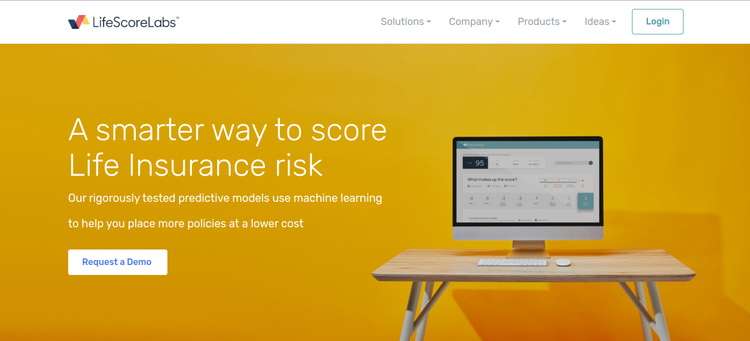Am I big enough for marketing automation?
My career tends to be riddled with serendipity. I seem to find what I need through good fortune, rather than through any organized effort. Whenever I ask “how did I get here,” the answer is usually “because I got lucky.”
Let me tell you a story about what I mean:
I’m a consultant. That means I run a small business. But it’s about as small as a business can be. It’s a one-person operation with nothing to sell other than what’s in my head. If, heaven forbid, I were to get hit by a bus, my business would die with me. By the same token, if I decided to retire, my business would retire with me.
Lately, this has begun to trouble me. I’ve started thinking about ways to expand … looking for ways to turn my tiny consulting business into something that more closely resembles a real business -- with products, and employees and other such things. In other words, I started thinking about how I could convert Paul Conley Consulting into something that could exist without Paul Conley.
So I thought about it. And worried about it.
Then I got lucky.
Luck of the Draw
One day, staring at my Twitter stream, I saw that Jonathan Jordan, the business coach who tweets under the name @MindfullyChange, was offering a free hour of coaching to the first seven folks to respond to his tweet.
I responded … and I won.
A few days later, I spent an hour on the phone with Jonathan. It was eye-opening. I learned a tremendous amount, but one thing stood out: it became clear that I was uncomfortable with the tasks that are required to grow the business. I like to deliver consulting services. But I’m not crazy about selling consulting services. Thus I wasn’t selling.
Fortunately, this reluctance to actively market and sell my services has not been much of a problem. I’m booked solid nearly year-round. Between referrals, repeat business and the use of the Junta42 matching service, I find enough work to fill my time. But after chatting with Jonathan I realized that the only way to expand my business beyond what I can accomplish working alone would be to expand my marketing/sales role, while delegating more of the hands-on work to others.
(No doubt, entrepreneurs who are much smarter than I said something like “no kidding, that’s obvious” when reading that last paragraph.)
Yet with no real sales skills to speak of, I was perplexed about what to do next.
So I thought about my conversation with Jonathan. And I worried about it.
Then I got lucky, again.
Fortune Smiles
A few days after my chat with the business coach, I received an email from Junta42 saying I had been matched with a potential client. (I won’t go into all the details here, but if you’re a content provider in the B2B content arena, you really should be in Junta42’s vendor/customer matching system. For everyone else, you just need to know that Junta42 vets vendors like me, investigates our experience and then matches us with marketers who need help with content.)
I reached out to the prospect. We traded some emails. I had a few phone conversations with company executives. Then we struck a deal.
As is often the case when I land a new client, I have to rapidly get up to speed on them and their industry. That was true here as well. So I started researching my new client, a company called Whatsnexx, a new competitor in the marketing-automation space.
And several minutes into my research I realized that the answer to how to expand my sales/marketing efforts might be found in the world of marketing automation.
(No doubt, those smarter-than-I entrepreneurs just said “no kidding, that’s obvious” a second time and then hit the BACK button on their browsers. Everyone else may want to read a little further.)
Klaatu Barada Nikto
A few days ago my toddler daughter watched as I tried, and failed, to make a major repair in our home. Her heartfelt advice was “Don’t worry, Daddy. You can buy a robot to do it.”
That’s sort of how I’ve come to think of marketing automation. It’s the robot that does things I cannot do.
If you’re not familiar with marketing automation, I’ll try to explain it. But first, let me offer you a piece of heartfelt advice of my own: Don’t accept anyone’s definition of marketing automation.
In my entire career I’ve never run into an industry that has such a difficult time defining itself. Rather than agree on the parameters (in the way that all grocery chains accept that they are grocery chains or all car makers accept that they are car makers), marketing-automation companies seem to be engaged in an endless pissing match about who is and isn’t a marketing-automation company and what is and isn’t marketing automation.
Reading that stuff will make you nuts. No doubt talking to vendors in the space will do the same. So for now, let’s just use my definition: Marketing automation is a giant robot that can help you market things.
OK, so far?
Good. So let’s look at what’s inside the robot.
Connecting things to connect with your connections
Marketing automation is nothing more, and nothing less, than a system of making connections. Most marketing-automation companies do things that, for example, link your Web site analytics to your email-marketing efforts. Some marketing-automation companies connect CRM systems (like Salesforce) with other databases and communication systems. Some companies do large-scale integration of databases. My client, Whatsnexx, provides its services through a proprietary system that avoids the need for that integration. Almost everyone in the field is engaged in linking things that are not necessarily linked (PPC campaigns, call-center activities, ad placement, social-network marketing, etc.) Everyone in the field is engaged in making it easier for businesses to market and sell.
If you read this blog and are not a member of my immediate family, you probably work in editorial in B2B publishing or B2B content marketing. Odds are you’ve never heard of marketing automation. But odds are that your company is already engaged in it....or is looking at possible vendors.
But as I said at the beginning of this post, I’m not a big company. I’m a one-man operation. So the question for me was “Am I big enough for marketing automation?”
The answer is “yes, sort of.”
What's it cost?
Prices for marketing-automation solutions vary widely. But there are a number of players, including Whatsnexx, with prices that start at around $500 a month.
Some of the less-elaborate solutions such as Loopfuse and Genius offer free versions for small businesses.
The problem, however, is that all of these solutions require that you have some sort of marketing systems in place. If you don’t have anything to connect, then you’re not big enough for marketing automation.
I asked Jacques Spilka, the Senior Customer State Marketing Strategist for Whatsnexx, a version of the “Am I big enough for marketing automation” question. He said “All you really need to do MA is a list of contacts. Everything else is marketing to that list.”
But remarkably, for someone who has been running a business all these years, I don’t really have a list. I don’t have much of anything to connect. I run some Google ads. I have some basic Web analytics. Recently I started using the free version of Zoho to keep track of my customers and leads. But my prospect list is nothing more than a subset of my connections on LinkedIn and a handful of people that send me emails.
So before I can honestly say that I am big enough for marketing automation, I’ll need to get more serious about the whole sales and marketing thing and build a proper prospect list.
I guess it’s time for another session with my business coach.




